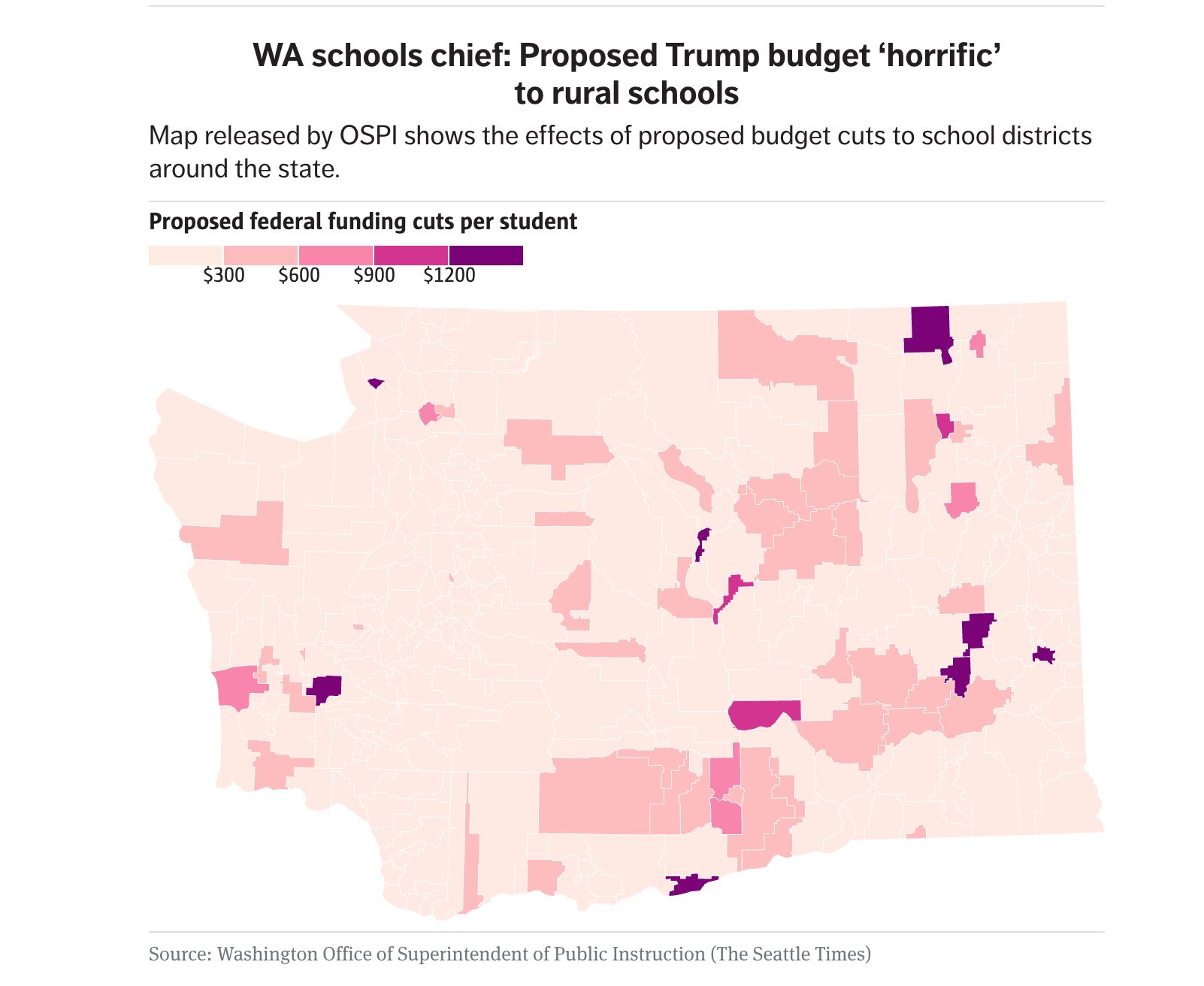The Superintendent of Public Instruction in my state of Washington has released his analysis of the "horrific" impact of the MAGA budget on the state's rural schools.
So much of federal money for education is for equalizing resources between districts. The funding is vital in districts with too little property to tax for schools, districts needing extra resources for educating English language learners or special education students, districts where low-income students benefit from meals at school, districts with few libraries or other educational resources outside of school and where children need extra support to become enthusiastic readers.
And the proposed education budget cuts are aimed precisely at this (already inadequate) funding intended to reduce inequalities.
The loss per student in the poorest rural districts are devastating:

From the Seattle Times,
Reykdal [the state Superintendent] said the proposal is an ideological blueprint for dismantling public education. He called it “intentionally reckless” and warned that the biggest impact would fall on students with the fewest resources and the least political power.
As one quoted district leader says, there is no "Plan B". There's no way to raise tax rates in these districts to cover the losses. State legislatures are stretching to cover layer upon layer of federal cuts to sustain already under-resourced public services. Charter schools promising "flexibility" with the same resources cannot simply perform magic in these small districts.
Adults in low-income rural communities are already less likely to have completed college than those in suburban and urban areas. For many reasons, rural communities already send fewer students to college than other communities.
In my writing, crafting the last line is among the hardest steps. Getting to the "so what", the call to action, the final insight is among the hardest steps of writing for me.
It's getting harder and harder to write last lines these days because as with many of you, I'm uncertain how to make a difference, I'm deeply saddened to see the work of so many wonderful people to expand college access cast aside, I am furious at how they are recklessly stripping people of opportunity for at least a generation. I literally pause at this point today to take deep breaths, to push back against despair, to keep writing.
So at least for now, it's the same last line (s) today that I've been writing for weeks. Get on the phone to your congressional (and state) reps and advocate for poor and working-class students. Get connected to people taking small steps every week to advocate for the vulnerable and less powerful. Assume that students want to be self-advocates and offer to work with them on growing their capacity for democratic action.
And I would love to hear from others in the comments about ways that you're advocating/connecting/creating/learning to protect our students and their life chances and about how we're protecting our own capacity to keep working on their behalf and on behalf of the communities from which many of us come.
Because we all – academics, support staff, rural students and their parents, students facing the growing uncertainties about college in the fall, students who are realizing their privilege – all of us should feel that we still have the right to co-author our last lines.




